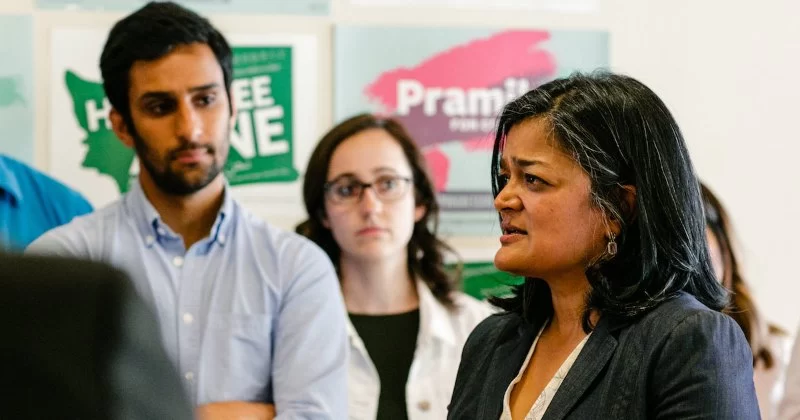
- understanding-medicare-expansion-proposals-in-congress - Understanding Medicare Expansion Proposals in Congress
- automatic‑medicare‑advantage‑enrollment-and‑hr‑3467 - Automatic Medicare Advantage Enrollment and HR 3467
- vice‑president‑harris‑in‑home‑care‑expansion - Vice President Harris’s In‑Home Care Expansion Proposal
- medicare‑for‑all‑and‑single‑payer‑bills - Medicare for All and Single‑Payer Bills
- residency‑slots‑via‑medicare‑funding‑proposals - Residency Slots via Medicare‑Funding Proposals
- political‑debates‑and‑bipartisan‑tensions - Political Debates and Bipartisan Tensions
- impacts‑benefits‑and‑risks‑of‑these‑proposals - Impacts, Benefits and Risks of These Proposals
- how‑esplawyers‑can‑help‑navigate‑medicare‑changes - How ESPLawyers Can Help Navigate Medicare Changes
1. Understanding Medicare Expansion Proposals in Congress
Recent Congressional activity has introduced multiple Medicare expansion proposals in Congress aimed at reshaping eligibility, benefits, and the structure of funding. As healthcare costs rise and the aging population grows, both parties are considering ways to broaden Medicare’s scope—from offering new services to simplifying enrollment. These expansions are tied to larger debates over public health policy, solvency of the Medicare trust fund, and balancing private plans versus traditional coverage. Below, we examine key proposals currently moving through Capitol Hill.
2. Automatic Medicare Advantage Enrollment and HR 3467
One headline-grabbing proposal is HR 3467, introduced by Rep. David Schweikert. It would automatically enroll all Americans aged 65+ into the lowest‑cost Medicare Advantage plan in their area beginning in 2028—unless they actively opt for traditional Medicare. However, enrollees would be locked into their selected plan for three years, severely limiting ability to switch later :contentReference[oaicite:1]{index=1}. :contentReference[oaicite:2]{index=2}
3. Vice President Harris’s In‑Home Care Expansion Proposal
Vice President Kamala Harris has championed a proposal to expand Medicare benefits to cover in‑home senior care, alongside hearing and vision services and limits on estate recoveries that disproportionately burden rural and minority families :contentReference[oaicite:3]{index=3}. :contentReference[oaicite:4]{index=4}
4. Medicare for All and Single‑Payer Bills
Beyond targeted expansions, broader proposals resurrect the idea of universal coverage. Bills like Senate S.1506 (2025) and previous versions like S.1655 and HR 1384 aim to create a Medicare for All single‑payer system. These legislative visions propose automatic enrollment at birth or residency, comprehensive coverage of hospital, mental health, long‑term care, dental, vision, gender affirming, and reproductive care with minimal to no cost-sharing :contentReference[oaicite:5]{index=5}. :contentReference[oaicite:6]{index=6}
5. Residency Slots via Medicare‑Funding Proposals
Another important but less publicized proposal—H.R. 3890, the Resident Physician Shortage Reduction Act—seeks to significantly expand Medicare‑funded residency slots by 2,000 annually from 2026–2032, adding 14,000 positions total :contentReference[oaicite:7]{index=7}. :contentReference[oaicite:8]{index=8}
6. Political Debates and Bipartisan Tensions
As of mid‑2025, Republicans and Democrats remain divided on healthcare expansion. GOP lawmakers are reviving bipartisan healthcare packages focusing on Medicare drug coverage, obesity drug funding, and PBM reforms—but frequently insist on Medicaid cuts and rejecting permanent ACA tax credit extensions :contentReference[oaicite:9]{index=9}. Democrats push for protecting expanded benefits such as eligibility changes and in-home care. These tensions reflect fundamentally different visions—private‑plan driven or public coverage driven—shaping Congress’s appetite for expansion.
7. Impacts, Benefits and Risks of These Proposals
Each Medicare expansion proposal carries varied benefits and potential risks:
- Automatic MA enrollment: increases convenience, potentially lowers premiums short-term—but limits choice, locks in seniors, and may cost taxpayers more overall.
- In‑home, hearing, vision coverage: promotes aging-in-place independence, reduces hospital costs, and addresses unmet needs—though expansion costs and eligibility rules remain uncertain.
- Medicare for All: promises universal coverage and no cost-sharing, but would massively restructure health financing and disrupt current insurance markets.
- Residency expansion: supports long-term workforce capacity and access—particularly in underserved areas—but requires sustained funding and policy support.
Overall, these proposals reflect evolving views on Medicare’s scope—from narrow funding tweaks to full universal coverage—and raise core questions on affordability, sustainability, and patient agency.
8. How ESPLawyers Can Help Navigate Medicare Changes
For individuals and organizations monitoring or affected by evolving Medicare expansion proposals in Congress, legal guidance is invaluable. Firms like ESPLawyers offer support by:
- Analyzing how proposed changes may affect entitlement eligibility, benefits, and private plan access
- Advising institutions—such as health providers or retirement communities—on legal compliance
- Assisting in advocacy strategy or participation in public comment or legislative engagement
- Guiding clients through disputes or coverage transitions triggered by new policies
Whether planning for in-home care eligibility, evaluating plan choice under HR 3467, or assessing universal coverage pathways, professional counsel ensures informed decisions and preparedness for upcoming shifts in Medicare policy.








